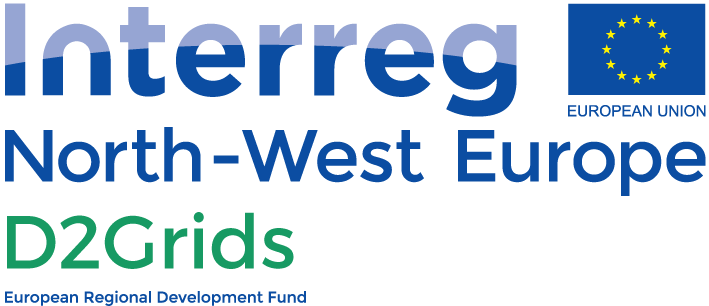ENVIRONMENTAL IMPACT ASSESSMENT
Are you interested to learn more about 5th generation district heating and cooling (5GDHC)? The D2Grids project is providing such opportunity. Open Universiteit, together with other D2Grids partners (BRGM, VITO, Greenflex, Mijnwater, ASPER), has developed a course on 5GDHC.
About the first module
The first module of 5GDHC (5th generation for heating and cooling grids) course focuses on providing general information about 5GDHC. In this module you will learn about 5GDHC principles, key performance indicators, advantages and disadvantages of the technology, differences of 5GDHC from other generations of district heating (and cooling), environmental aspects and possibilities of upgrading existing heating and cooling networks.
The 5GDHC course offers theoretical video lectures spiced up with real examples from the project pilot sites. For enthusiastic and advanced learners, the course provides additional reading materials, developed within the project. The course participants can accomplish assignments to check their understanding of the materials and ask questions to experts.
The course is currently available in English, French, Dutch and German.
Why should you take this course?
The 5GDHC course offers the opportunity to gain exclusive knowledge and experience about 5GDHC from experts involved in implementing innovative district heating and cooling.
This course is ideal for those who would like:
- to expand their knowledge about 5GDHC;
- to learn what technologies are used in 5GDHC;
- to know how to start implementing 5GDHC;
The course is aimed at participants from industries, technology suppliers, small and medium-sized enterprises and actors on the energy market, but other participants are also welcomed to attend the course.
Some basic knowledge of the district heating concept is required.
Do you want more information ? Click here !
About the second module
This course will take you through the main 5GDHC components, including the sources, thermal storages, drilling aspects, heat pumps, pipes and smart controllers that can be used in 5GDHC.
The 5GDHC course offers theoretical video lectures illustrated by real examples from the project’s pilot sites. It also provides additional reading materials for those who would like to expand their knowledge and learn more about project developments.
The course is divided in seven parts. You can find out about:
- The description of the main components used in a 5GDHC grid, for example in pipes, heat pumps or heat and cold storage means.
- What are the different types sources that can be used for DHC systems, the advantages and disadvantages of each type and the most suitable ones for 5GDHC systems.
- The different types of thermal storage and the ways they are used in 5GDHC grids, how the heat pumps function and their place in a grid
- The pipes, their materials, and their function
- demand side management, how to deal with peak shaving, and the use of smart controllers in 5GDHC
- Feedbacks and information about the drilling process within 5GDHC grids
Who should you take this course?
This course is ideal for people who are interested in further learning about 5th generation district heating and cooling and want to:
- Learn about the main technological components used to build 5GDHC network.
- Explore each technological component in more details.
- Get an overview of pilot sites examples on 5GDHC technology.
- Discover information about an innovative, sustainable, and inspiring project.
Some basic knowledge of the district heating concept is required.
How and where to take this course?
The 5GDHC technology course is free of charge!
The access to the course is provided upon registration. Instructions on how to register for the course are available here!
You can follow the course at any time and at your own pace.
MODULE 3 – SOLAR TRAINING
The D2Grids project has also worked on integrating solar energy into 5GDHC grids. To know about the best practices and understand how it can be done, you’ll find below a special module on this topic just below!
